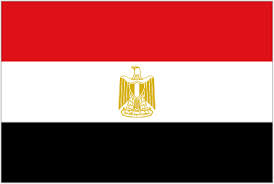Egypt has a rich and interesting history. At a time when most African countries were not in the world map, it earned the sobriquet ‘Cradle of the World’s Civilisation.’ It is reputed to be home to the world’s oldest university while Europe was still steeped in barbarism. At a time in history, it was the world’s most powerful empire which made it very attractive to Alexander the Great as a prized trophy. It has seen different religions ranging from Polytheism, Christianity and Islam.
It has an antecedent of struggles and revolts most especially in the 20th century. From the overthrow of King Farouk in 1952 by Gamal Abdel Nasser to the Suez Canal crisis, the six-day war, the Yomkippur war, its intervention in the Middle East Crisis and the Arab Spring. It has been of great interest to historians and pundits alike.
While democracy apologists rejoiced at the fall of former President Hosni Mubarak in 2011, I was rather sceptical as to whether the much needed change will come about in the country. The histories of most of the world’s revolutions mostly end up changing the leadership without any corresponding change in the structure that triggered the revolts in the first place. The examples of the French Revolution, Russian Revolution amongst many others are examples of how revolts failed to bring the much desired liberty.
Sadly, my observations in Egypt were proven right. The Supreme Council of the Armed Forces which took over the leadership of the country after Mubarak’s ouster saw a massive crackdown on human rights activists, silencing and liquidation of dissents, killings of protesters during peaceful demonstrations, police brutality, harassment of the Christian minority and censoring of the activities of foreign international donor agencies especially those with s strong human rights interest such as the Freedom House.
The first democratically elected President in the country’s chequered history, Mohammed Morsi did not change the fortunes of the crisis ridden country. Backed by the Muslim Brotherhood, the same repression that his predecessors were guilty of was used by him to continue the reign of terror. Journalists, newspapers and online mediums suffered severe censorships. He stopped the broadcasting of Dream Television which was highly critical of his leadership and had to take a week long battle for its license to be regained. He unilaterally issued a constitutional declaration ousting both the powers of the judiciary, constitution and the council. He angered the people further by removing the powers of the prosecutor-general. In total disrespect for human rights, the Muslim Brotherhood passed a constitutional draft limiting the rights of women. The dreaded secret police which reigned with impunity under Mubarak was revived by Morsi and was used to witch hunt critics of his autocracy. The Muslim Brotherhood metamorphosed into a cult as the membership of it was the unwritten criteria to getting top public appointments in the country. In the end, the people could not take his excesses anymore and threw him out of office in active collaboration with the military after spending barely a year in office.
It is cheering news that elections will be held next year as we believe that democracy despite its flaws still remains the best form of government as history has shown time and time again. However, Egyptians must not delude themselves that the much needed stability which is the fulcrum for economic prosperity will come automatically simply because a democratically elected government is in place. The Morsi fiasco should serve as a constant reminder.
There has to be a great deal of patience. It will take some time for the democratic culture to take root. Rome was not built in a day goes the old adage! The leaders have to show commitment to imbibing democratic ideals which involves a great deal of dialogue and consensus. It is a good thing that Egypt has a strong sense of people’s power, thanks to the Arab Spring. This should give impetus to a Lee Kuan Yew like leader to take advantage of the strong spirit of nationalism to heal the wounds, create an atmosphere of tranquillity and craft a home grown economic agenda that can get them swiftly out of the woods.
Mercifully, the country is not under any form of external influence from the west which could act as clog in wheel to her prosperity. The new leadership should take advantage of this to boost its famous tourism industry which is a major foreign exchange revenue earner. The crisis no doubt has made it suffer a huge setback which has a rippling effect on the other sectors of the economy. The large oil deposits should be prudently managed but more importantly greater focus should be paid on the development of human capital as that is not only the future but its sustainability is better guaranteed. The incoming leaders should take a cue from Singapore whose airport constitutes a great foreign exchange revenue earner to boost the activities of the Suez Canal.
We hope in no distant time that the world would converge in Egypt to marvel at the wonders of the Arab Spring!
@ademiluyitony


